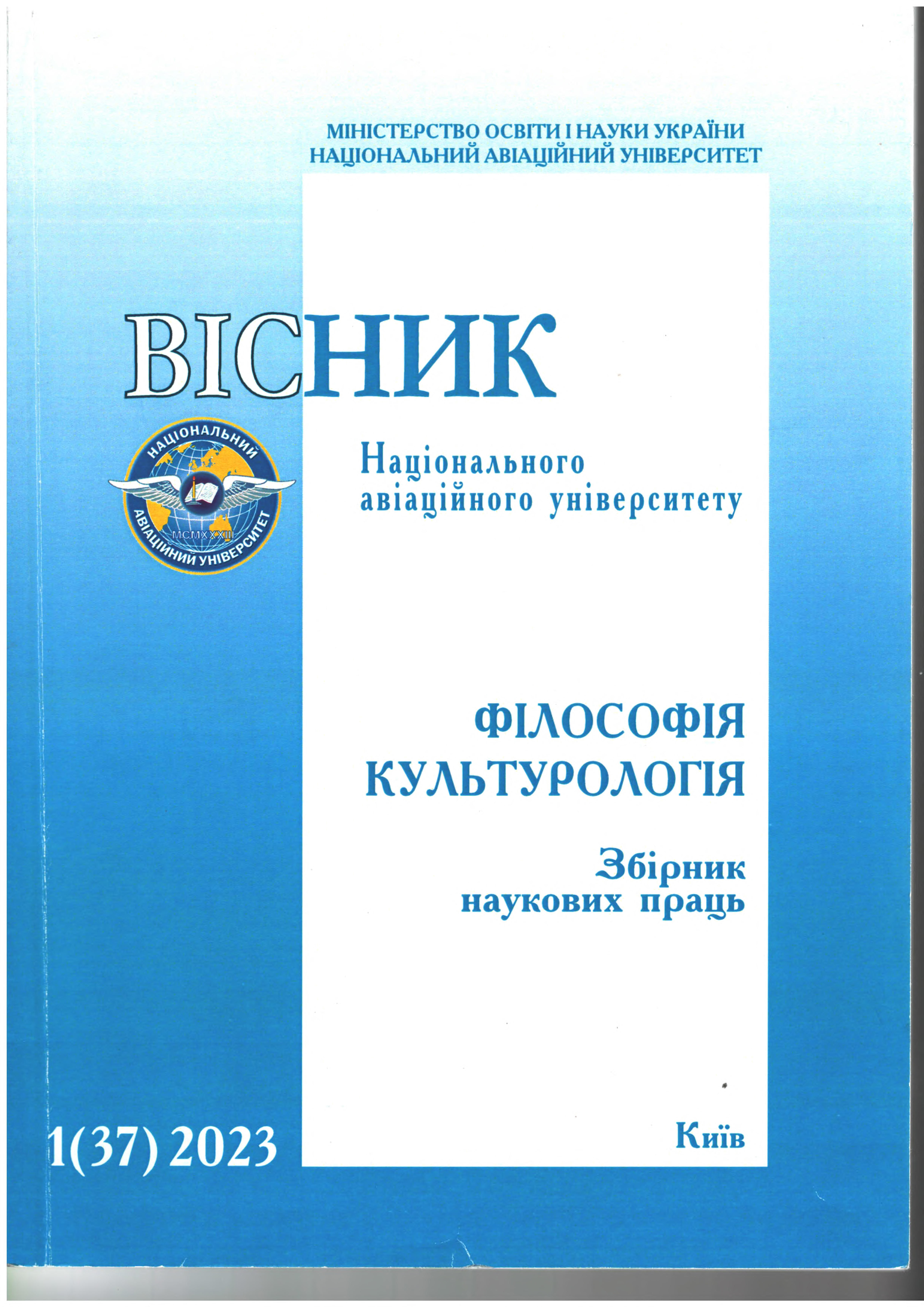THE PROBLEM OF ENVIRONMENTAL RESPONSIBILITY ON THE BREAKTHROUGH OF THE CENTURY
DOI:
https://doi.org/10.18372/2412-2157.37.17590Keywords:
відповідальність, соціальна відповідальність, екологічна відповідальність, етика, природаAbstract
Introduction. Among the global problems of our time, the environmental problem remains particularly acute, which requires addressing the
problem of responsibility. In all eras, responsibility was considered one of the most important human qualities, and at the end of the last century,
the problem acquired fundamental importance. Today, humanity faces the need to arrange a new way of interacting with the world, which will
involve a high level of personal responsibility for everyone. The aim of the study is the substantiation of the theoretical foundations of
understanding the essence of environmental responsibility in the context of aggravating global problems. Research methodology of the study
are the works of A. Schweitzer, K.-O. Apel, H. Jonas, K.-M. Mayer-Abiha. An important methodological tool is the sociocultural approach, as well
as the principles of historicism and systematicity. Research results. Against the background of changes taking place in most societies, the
processes of transformation of their traditional values, which include responsibility, are of particular concern to specialists. The fundamental
revolution in its understanding did not happen by chance. Thus, for decades, the idea has been spreading in philosophical circles that most of
the global problems of humanity are connected with its deep spiritual crisis. Only real steps in the direction of solving this problem will bring
humanity closer to overcoming all others, including the ecological one. Discussion. In recent decades, philosophical circles have actively
discussed the problems of the formation of eco-awareness, the issue of the evolution of the biosphere and its transition to the noosphere. In the
context of the new principles of human coexistence, societies feel the need for new individuals who are able not only to identify environmental
problems and find ways to solve them, but also to prevent their occurrence. Conclusions. Humanity must realize that common future will
depend on putting forth an idea that would unite everyone and be based on the priority of spiritual values shared by representatives of different
cultures. High social responsibility should become such an idea.
References
Апель К.- О. Дискурсивна етика як політична етика
відповідальності у ситуації сучасного світу. Єрмоленко А.
Комунікативна практична філософія. – К.: Лібра, 1999. С. 395-
Йонас Г. Принцип відповідальності. У пошуках етики для
технологічної цивілізації. К.: Лібра, 2001. 400 с.
Маєр-Абіх К.-М. Повстання на захист природи. Від довкілля
до спільносвіту. Київ: Лібра, 2004. 196 с.
Швейцер А. Культура і етика. 1915. С. 307.
Орденов С. С. Формування екологічної свідомості в умовах
глобалізації. Вісник Національного авіаційного університету.
Серія: Філософія. Культурологія: Збірник наукових праць.
(34). К.: НАУ, 2021. С. 46-50.
Яковенко Т. Принцип відповідальності як еко-етичний
імператив сталого розвитку. Наука. Релігія. Суспільство. № 4,
С. 102-106
Дротянко Л. Г. Екологічна криза техногенної цивілізації:
ризики ХХI століття. Вісник Національного авіаційного
університету. Серія: Філософія. Культурологія: Збірник
наукових праць. 2(34). К.: НАУ, 2021. С. 9-14.
Скиба І. П. Специфіка екологічного дискурсу в ХХI столітті.
Вісник Національного авіаційного університету. Серія: Філо-
софія. Культурологія: Збірник наукових праць. 2(34). К.: НАУ,
С. 55-60.

